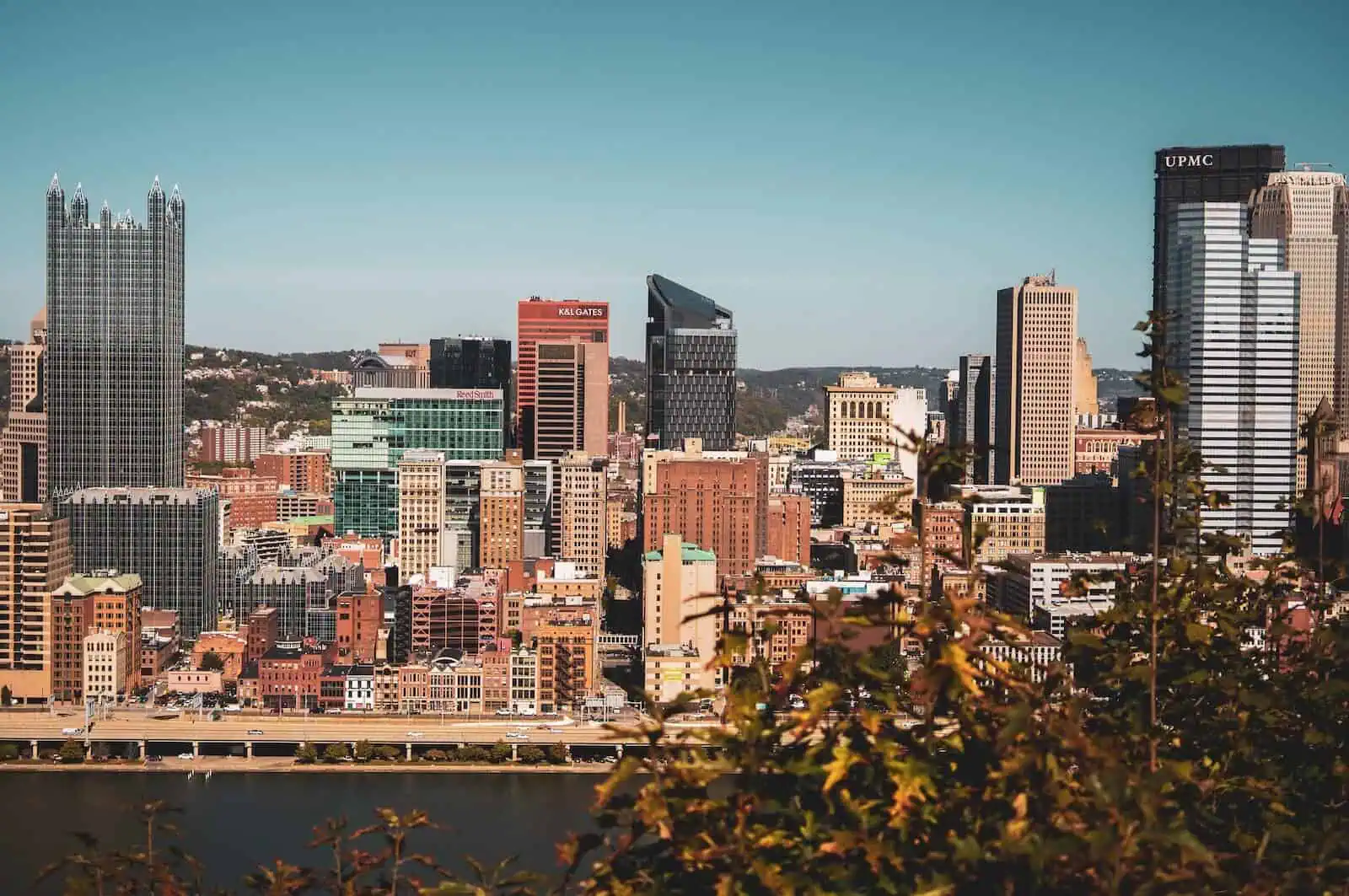“I’ve lived in Pittsburgh my entire life, and there’s never been a time that I’ve seen this city grow”.
The above comment was made by the immediate former Mayor of Pittsburgh, Bill Peduto, when he was asked about the city’s population growth.
Pittsburgh has regularly lost population since the 1980s collapse of the city’s steel industry, which caused thousands of residents to lose their jobs and relocate elsewhere in search of work.

According to recent U.S. Census Bureau data, Pittsburgh metro now has 303,207 inhabitants — down from a peak of around 677,000 in the 1950s.
Most of the city’s population, 64%, is White, followed by 24% Black and 6% Asian, with the rest of the residents comprising small percentages of other racial and ethnic groups. Women make up the majority of Pittsburgh’s population, which is 51.9% female and 48.9% male.
Why Has the Population of Pittsburgh Been Falling Consistently for Decades?
Since the start of 2000, Pittsburgh’s population has shrunk by almost 10% — and experts had projected that by 2020, fewer than 300,000 people would be living in the city.
HomeBuyers of Pittsburgh has been active in the Pittsburgh real estate market for 10+ years, purchasing and buying 750+ homes, and searching for better economic possibilities in other U.S. states is one of the most frequent reasons we observe people leaving the Steel City. However, as more start-ups and major corporations (Google, Apple, Uber, Intel, etc.) continue to establish offices in Pittsburgh, the city’s decades-long population decline brought on by job relocation may soon end.
These companies will provide thousands of jobs, higher wages, expand retraining opportunities, and other benefits, which can help keep graduates from Pittsburgh universities in the city and bring in millennial workers, helping increase Pittsburgh’s population.
The city government is also stepping up its support of locally owned businesses to help them maintain their growth and generate opportunities that will attract and keep talent in Pittsburgh.
With an estimated 16% of the population over 65, Pittsburgh’s large number of elderly residents is another factor contributing to the city’s continuous population loss.
The high number of senior citizens is mostly because of young individuals leaving Pittsburgh, and when they do move with their future families, they widen the age gap between young and old. Owing to Pittsburgh’s large aging population, increasing resident numbers has become more difficult because annually, there are more deaths than births, leading to a natural demographic fall.
Additionally, many retirees depart Pittsburgh for areas with warmer weather, including Florida, further compounding the city’s population decline.
Which Pittsburgh Neighborhoods Are the Most Populous?
The number of people living in Pittsburgh’s over 90 neighborhoods has changed significantly over the years, despite the city’s long-term population decline.
Much of the population growth and drop in the different areas has been influenced by variables like housing costs, the availability of amenities and attractions, safety, the standards of the local schools, and more.
For example, one of Pittsburgh’s most expensive neighborhoods, the Strip District, saw a nearly 200% increase in population in the last decade — going from 616 residents in 2010 to 1,845 at the end of 2020.
Other Pittsburgh neighborhoods that experienced considerable population growth between 2010 and 2020 were Shadyside, which added 1,402 folks (10.1%), and Central Business District (Downtown), which got 1,848 (50.9%) new residents.
Pittsburgh’s most sought-after neighborhoods (Strip District, Downtown, Shadyshide, Squirrel Hill North, Squirrel Hill South, etc.) are expected to continue experiencing an increase in population in the coming years as more individuals choose to live in these areas.
Neighborhoods that have had a significant number of residents leave include Marshall-Shadeland, which saw a fall of 1,997 (33%), Lincoln-Lemington-Belmar, which recorded a decline of 1,247 (25.5%), and Beechview, which lost 378 (4.7%) individuals. Organization closures that left people without jobs, poor housing, and security concerns drove residents out of these neighborhoods.
Data also suggests that some Pittsburgh neighborhoods have seen disproportionate change with Asian and Black populations.
For instance, the Carrick area in Pittsburgh’s south received a notable increase in its Black population between 2010 and 2020, with the addition of 694 (71.4%) Black inhabitants. In the same period, the Black population in East Liberty decreased from 3,976 to 2,614—a 34.3% decrease.
The neighborhoods with the biggest changes in Hispanic and Latino population were Beechview, Shadyside, Brookline, Carrick, Bloomfield, and Central Business District, where there were increases of 336, 257, 254, 237, 192, and 189, respectively.
HomeBuyers of Pittsburgh: The #1 Cash Home Buyer
Are you recently relocated to Pittsburgh and looking for a great place to call home — or are you a Pittsburgh resident moving to a new city in pursuit of better financial prospects and selling your house?
HomeBuyers of Pittsburgh is well known for purchasing homes in their current condition for cash, without requiring sellers to cover closing expenses or agent commissions. We would be delighted to help you sell your house here quickly, just as we have for hundreds of other Pittsburgh property owners.
If you decide to work with us, we can make you a competitive cash offer after a brief, 20–30-minute home consultation, during which we determine which improvements or repairs will boost your home’s value. If the offer excites you, we can close the deal on the house sale in 21 days or on a day of your choosing, granting you the financial resources you need to confidently transition to the next chapter of your life.
Also, HomeBuyers of Pittsburgh has assisted many new Pittsburgh residents learn more about the city’s different neighborhoods and find their dream house at a reasonable price. Should you decide to move to Steel City, we can assist you in the same way.
Contact us at info@urbanpgh.com or 412-444-8914 today to arrange a free consultation to discover how we can help you sell or buy your Pittsburgh home as soon as possible!









